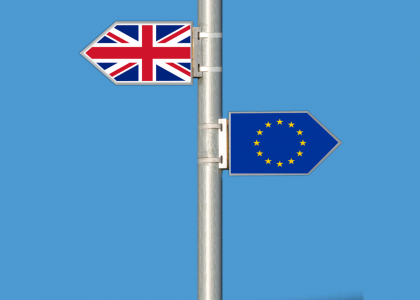While out shopping with his baby daughter last month, Watson Harrop Jr. of County Durham, a Gypsy and professional harness racer, sparked off a social media challenge that has since gone viral. Mr Harrop filmed himself at his local supermarket donating a trolley of groceries to a foodbank, and nominating family members and friends to follow suit by making similar foodbank donations within 48 hours. The ‘Foodbank Challenge’ has been hugely influential, and foodbanks across the country are thanking Gypsies and Travellers for their generosity.
Gypsies, Roma and Travellers are, as my colleague historian Dr Becky Taylor argues, ‘some of the most marginalized and vilified people in society. They are rarely seen as having a place in a country, either geographically or socially, no matter where they live or what they do’.
Indeed, the positive contributions that Gypsies and Travellers make to the societies they live in are largely neglected by the mainstream media and in dominant narratives. But this does not prevent these groups from continuing to perform good deeds.
When I contacted Watson Harrop Jr to ask him why he thought the foodbank challenge he started was proving so successful, he was very keen for it not to be sensationalised as another ‘Big fat Gypsy’ story. What Mr Harrop wanted to emphasise was how this challenge is about communities of all ethnicities ‘coming together and helping families in need at the season of good will via the power of social media’.
Lisa Smith, chair of ACERT (Advisory Council for the Education of Romanies and other Travellers), was the first to interview Mr Harrop for a national news service. When I contacted Editor of the Travellers’ Times Mike Doherty to ask about responses to the story, he said that ‘in terms of traffic to our website and social media platforms, the Food Bank Nomination Challenge has been the biggest hitting story that the Travellers’ Times has ever published by a long shot. Our coverage helped the challenge to go viral and we have been inundated with requests from local and national broadcasters and press. The Daily Mail even lifted parts of our interview with Watson for their own version – which is great – but unfortunately failed to credit us’. While local media outlets have picked up on the story, the mainstream media and broadsheet press have on the whole overlooked the initiative.
As an academic of Romany Gypsy heritage myself, I’m all too aware of the misconceptions about Gypsies, Roma and Travellers that prevail in literary and media representations throughout Europe. Gypsies and Travellers as charitable givers don’t usually figure in dominant narratives, yet what Mr Harrop is doing is in fact not at all unusual for Gypsies and Travellers. As writer Damian Le Bas observed when I asked him about the foodbank challenge, while charitable giving ‘isn’t a literal, strict cultural obligation for Gypsies and Travellers (as it is in many religious communities, say) … it’s held in very high regard. There is a strong belief in both Romany and Irish Traveller culture that you should help the helpless’. Le Bas, who has tackled skewed media representations of Gypsy/Traveller communities in his own work, agrees that ‘it has been frustrating at times to not see this [the foodbank challenge] reported on, as it would help balance out the negative press’. Sherrie Smith, co-founder and project manager of a hate-incident and reporting site and support service for Gypsy, Traveller and Roma communities, names numerous Gypsy/Traveller families who do ‘so much good work that goes unseen’. She herself is working with La voix des Rroms to collect donations of clothing and blankets, and will drive to France during the Christmas break to distribute these items directly to impoverished Roma children. Professional heavyweight boxer ‘Gypsy King’ Tyson Fury has announced that he will donate the £8 million earned in the Deontay Wilder fight to the UK’s homeless.
Mike Doherty points out that ‘it’s important to remember that Gypsies and Travellers helping others is nothing new to the Travellers’ Times. One of my first ever stories, on starting as editor, was about a group of Travellers raising money for Great Ormond Street children’s hospital. This is not uncommon and these are some of the most popular stories with our readers and money has been raised for Cancer charities, hospices and many other good causes. We have also published a few stories on faith-based Catholic Traveller group initiatives, who have been raising money from their own community and providing direct aid to rough sleepers for donkey’s years’.
Sadly, when I asked her about the foodbank challenge and media coverage, Sherrie Smith said ‘It’s been upsetting for us at GATEHERTS seeing the amount of reports that people have entered on prejudice, hate and discrimination against Travellers on the bottom of positive #foodbankNomination stories’. Indeed, trainee barrister Brigitta Balogh told me that ‘under exceptional circumstances – only if it serves their agenda – some media groups might bring attention to issues. Nevertheless, they have no regards to the shockingly large amount of racist comments made by readers, therefore the scale remains imbalanced’.
Such comments use discursive strategies to present racist patterns of thought as non-racist and impartial observations. Gypsies and Travellers thus grow up and circulate in geographical spaces which, as Dr Sindy Joyce argues, they experience as hostile and threatening. When I first worked with the University of East Anglia’s Outreach team in 2009 to bring a group of young Gypsies and Travellers from local sites onto campus for a Taster Day, I was struck by the feedback these young people provided afterwards; ‘we walked around the university all day, and nobody called us any bad names’.
In the current climate of rising intolerance and racial abuse, maybe we should learn a thing or two about what the Gypsies have done and continue to do for us.

Dr Hazel Marsh is a Lecturer in Latin American Studies at the University of East Anglia, England.
This is a longer version of an article published in The Conversation.





